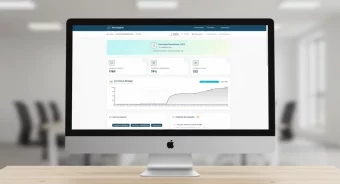An event schedule is crucial to successfully plan events. It involves creating a well-organised timeline that outlines the various activities, sessions, and breaks throughout an event. A meticulously planned schedule ensures that participants and attendees have a clear understanding of what to expect and when. It helps to maintain flow, maximise engagement, and ensure a seamless experience for all involved.
By mapping out the sequence of events, it becomes easier to identify any potential conflicts or overlaps and make necessary adjustments. Additionally, a well-structured schedule allows organisers to allocate appropriate time for each activity, ensuring that everything runs smoothly and on time.
Key Components of an Event Schedule
An effective event schedule acts as the backbone for any well-organised event, detailing the sequence and timing of activities, which helps in managing the flow seamlessly. Here are some of its key components:
1. It should specify the commencement and conclusion of each session, which is crucial in avoiding schedule clashes and ensuring that each activity is allotted sufficient time.
2. The schedule should list the key participants, such as speakers or entertainers, along with any special arrangements required for their presentations or performances.
3. It is important for the schedule to accommodate the comfort and engagement of the attendees by incorporating intervals for refreshments, meals, and informal networking.
4. For events with a diverse agenda, such as conferences or festivals, the schedule might include multiple concurrent sessions tailored to varying interests. Event organisers should be mindful of properly labelling the different session streams or strands.
Importance of Event Schedules
The importance of an event schedule cannot be overstated. It plays a pivotal role in the success of any gathering. Here are some of the reasons why event scheduling is paramount in event planning:
Efficiency
Time is managed effectively, allowing for all planned activities to be executed without delays.
Coordination
Facilitates the coordination of various moving parts, from AV equipment setups to participant transitions between sessions.
Communication
Acts as a key communication tool that informs everyone about the timing and flow of events.
Expectation Management
Helps attendees plan their attendance, particularly in events with multiple tracks or options.

Four-step Checklist for Event Scheduling
Creating an effective event schedule involves several steps, starting from the initial planning stages to finalising and distributing the schedule. Here’s a breakdown:
1. Gather Information
- Determine the total duration of the event.
- List all the sessions, speakers, and activities that need to be included.
- Consider the needs and preferences of attendees, such as break times and interactive sessions.
2. Draft the Schedule
- Arrange the activities in a logical sequence.
- Allocate time slots, taking into account the length of each session and necessary transitions.
- Build in buffer times to accommodate overruns and breaks.
3. Review and Optimise
- Solicit feedback from co-planners or stakeholders.
- Adjust the timing and order based on feedback and logistical considerations.
- Ensure there are no conflicts or over-packed schedules that could lead to attendee fatigue.
4. Finalise and Distribute
- Confirm details with speakers and session leaders.
- Finalise the schedule and prepare it in formats that are easy to distribute and read.
- Share the schedule with attendees well in advance and make it accessible during the event.

Ensuring the schedule is readily accessible, through various means such as digital apps, such as the event app offered by Eventscase, printed handouts, or well-placed signage, also plays a crucial role in enhancing attendee participation and overall satisfaction.
Tips on How to Create an Effective Event Schedule
Creating an effective event schedule requires careful planning and attention to detail. Here are some essential tips to help you master the art of event scheduling:
Start Early and Allocate Sufficient Time
Event scheduling is not a task that should be rushed. It is crucial to start the process early to allow for ample time to plan and make necessary adjustments. Allocating sufficient time ensures that all aspects of the event are considered and that the schedule can accommodate any unforeseen changes.
Consider the Target Audience
When creating an event schedule, it is essential to consider the needs and preferences of the target audience. Understand their expectations, interests, and availability. By tailoring the schedule to meet their requirements, you can enhance their experience and increase their engagement.
Balance Content and Breaks
Maintaining a balance between informative sessions and breaks is crucial for an effective event schedule. Avoid overwhelming participants with back-to-back sessions without any breaks. Allow ample time for breaks, networking, and Q&A sessions to ensure attendees can absorb the content and interact with speakers and fellow participants.
Communicate Clearly
Clear communication is key when it comes to event scheduling. Ensure that all participants, speakers, and staff members have access to the schedule well in advance. Provide detailed information about each session, including the topic, speaker, and duration. Clear communication minimises confusion and sets expectations for all involved.
Be Flexible
While it is crucial to create a well-structured event schedule, it is equally important to be flexible. Unexpected circumstances may arise, requiring last-minute changes to the schedule. Having a contingency plan and being prepared to adapt is essential to ensure a seamless event experience.

The Future of Event Scheduling
As technology continues to advance, event scheduling is likely to evolve to meet the changing needs and preferences of attendees. The future of event scheduling may include:
AI-Powered Event Scheduling
Artificial intelligence (AI) can play a significant role in automating and optimising event scheduling. AI-powered algorithms can analyse attendee preferences, historical data, and other relevant factors to generate personalised event schedules. This technology can enhance participant engagement and improve the overall event experience.
Real-Time Scheduling Updates
Real-time scheduling updates will become more prevalent in the future. Mobile apps and event management platforms will provide attendees with instant notifications about any changes or updates to the event schedule. This real-time information will ensure that participants have the most up-to-date schedule at all times.
Virtual and Hybrid Events
The rise of virtual and hybrid events has introduced new challenges and opportunities for event scheduling. Event organisers will need to navigate the complexities of scheduling sessions across different time zones and platforms. Virtual event platforms will likely offer advanced scheduling features that cater to the unique requirements of online and hybrid events.
Wrapping Up
Understanding the importance of event scheduling, incorporating key elements, and following best practices allows event organisers to create effective event schedules. Tools and resources such as event management software streamline the scheduling process and enhance coordination.
Looking ahead, the future of event scheduling holds exciting possibilities especially with the takeover of artificial intelligence. By focusing on continuous improvement, and investing in the correct tools, event organisers can master the art of event scheduling and create exceptional experiences.
If you would like to subscribe to our newsletter to get live updates on everything related to our platform – news, blogs, events, announcements and much more, please, register here.





